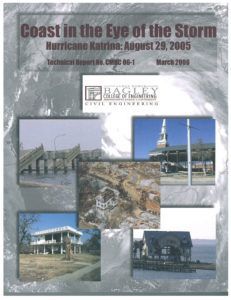HEALTH &
SAFETY
CAF is proud to partner with the Construction Industry Alliance
for Suicide Prevention
You Can Help!
The Construction Industry Alliance for Suicide Prevention (CIASP) offers a variety of resources. Sometimes, just asking if someone is okay is all it takes to get them to open up. And don't forget that 988 is a suicide and crisis lifeline available 24/7. Click the button below to find out more about CIASP's resources.
ONLINE
SAFETY SERIES
The Foundation partnered with the National Ready Mixed Concrete Association and funded the development of several online safety videos, including Backing Accident Prevention Program, Concrete Mixer Truck Rules for Using a Spotter, Lockout/Tagout/Tryout - Part I and Lockout/Tagout/Tryout - Part II and Pre-Trip Inspection (available for front and rear discharge mixers). The training lessons are unique in that the videos may be viewed 24/7 and once a participant scores 100% on a 10-question quiz, proof of training is automatically generated. Please click here for more information.
The latest safety offering is an online Plant Safety video, available for free on the Foundation's YouTube channel.
OTHER HEALTH &
SAFETY PROJECTS
The Survey of Insurance Costs for Multifamily Buildings Constructed with Wood-frame and Concrete study compares insurance premium quotes for builder's risk insurance (during construction) and commercial property insurance (during occupancy) for a Reference Building built using combustible (wood-frame) and noncombustible (concrete) construction in five Reference Cities. Please also check out this Concrete inFocus article on the project.
Factually Analyzing Integrated Layers of Safety Against Fire's Effects (FAIL-SAFE) - This project was spearheaded by the National Association of State Fire Marshals and studied the impacts of fire and life safety in structures equipped with multiple layers of both active and passive fire protection features. Deliverables may be found here. A summary may be found here.
Hurricane Katrina Forensic Study - In an effort to learn what role building materials and building codes play in preventing or contributing to structural damage from weather-related incidents, such as what occurred during Hurricane Katrina, the Mississippi Concrete Industries Association (MCIA) and the RMC Research & Education Foundation worked with the Mississippi State University Civil Engineering Department to perform a forensic evaluation of building materials and building codes. Concrete structures provide greater protection from high wind and projectile damage than most other building materials; however, building codes in regions prone to weather incidents such as hurricanes have not been updated to ensure that both commercial and residential buildings are adequately equipped to protect public safety during a catastrophic weather event. This study assessed how structures performed under hurricane conditions under the current building codes at the time. The study is very large for downloading so we have also provided an Abstract and Executive Summary. The full report is also available as a hardcopy by contacting Ally Herrera.

Air Emissions Testing Program at Ready Mixed Concrete Plants - For years, concrete producers and the Environmental Protection Agency (EPA) did not have an accurate assessment of actual emissions of total filterable particulate matter from ready mixed concrete plants. In an effort to better understand these emissions and the effect they have on air quality, the RMC Research & Education Foundation funded a study that developed a testing protocol and program, collected the data from a representative number of concrete plants, and established verifiable emission factors based on the collected data. This information was then used by the National Ready Mixed Concrete Association and EPA to make changes to EPA’s AP-42, Chapter 11.12 to reflect the more accurate data. Due to operating permit fees being based on emission rates, the adoption of the Foundation’s data has resulted in an estimated 25% reduction in permit fees for transit mixed concrete plants. An Executive Summary of the report is available.
Hexavalent Chromium Personal Exposure Study - This study collected exposure data from four ready mixed concrete facilities and found exposure rates to be significantly lower than OSHA’s suggested personal exposure level. The study provided an assurance to employers and employees that there is extremely low inhalation exposure to industry personnel with regard to hexavalent chromium. An Executive Summary of the study is available.
